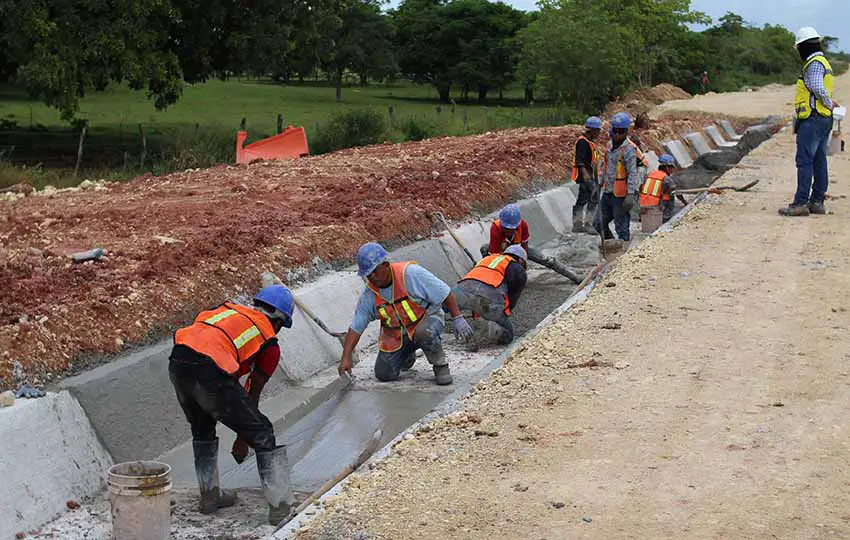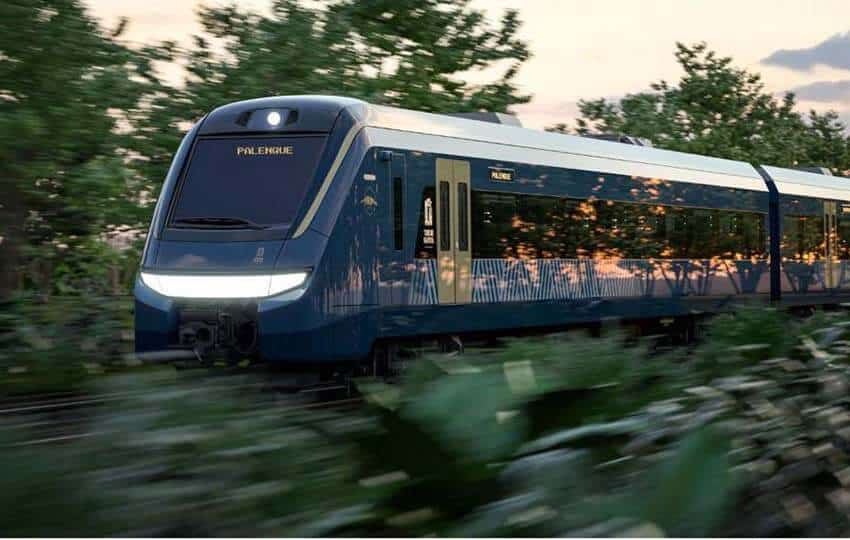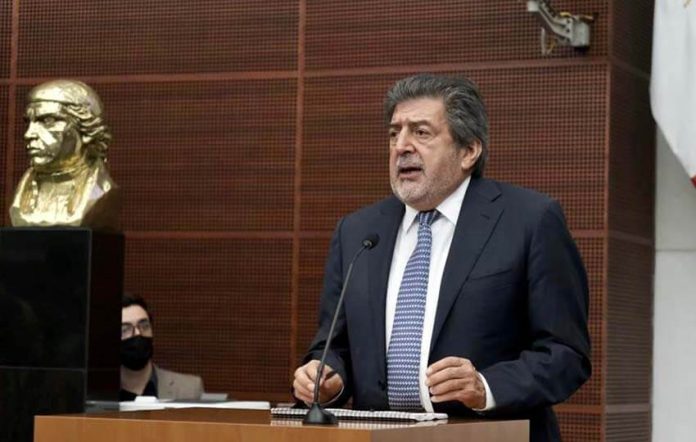Six far-right organizations are behind most legal challenges against the Maya Train railroad project, according to the director of the federal agency the National Tourism Promotion Fund (Fonatur).
Rogelio Jiménez Pons said Monday that 327 people have filed 25 injunction requests against the 1,500-kilometer railroad currently under construction in Tabasco, Campeche, Yucatán, Quintana Roo and Chiapas.
Fonatur is managing the US $9.9 billion project, which is slated to begin operations in 2023.
“It’s obvious that the extreme right is in the area,” Jiménez told reporters after an appearance before the Senate’s communications and transport committee.
“There are very conservative groups,” he said, citing the human rights-focused NGO Indignación and the National Anti-AMLO Front as two of the six groups behind the legal challenges. “They don’t like us,” Jiménez added before conceding that the groups have the right to oppose the project, one of the federal government’s most important infrastructure projects.

Asked whether additional injunctions against the train — several have already been granted – would delay it, the Fonatur chief said he hoped not.
“We have to comply with the law. We don’t want to anticipate any decision, it’s up to the courts. … We have to look behind these injunction requests – there are undoubtedly people who believe it is necessary to stop the train,” he said.
The majority of those people are motivated by politics rather than genuine concerns, Jiménez added.
During his appearance before the Senate committee, the Fonatur director said the projected cost of the railroad – along which tourist, freight and local passenger services will run – had increased 43% to 200 billion pesos from an initial estimate of 140 billion.
He reasserted that its construction won’t damage the environment in the states through which it will run, claiming that forested land and nature reserves are being preserved. Jiménez also said that repair work will be carried out to improve 15 archaeological sites located along the route.
That route has been modified in some cases to protect new archaeological discoveries, he said. Jiménez also told senators that the Maya Train will generate 750,000 formal sector jobs in the municipalities where stations are located.

“The stations are going to be a significant factor in [economic] growth,” he said.
In addition to tourism-oriented and construction jobs, the rail project will spur the creation of food industry positions, Jiménez said. Ten years from now there is a possibility that the railroad will have generated more than 1 million jobs, he said, adding that it could reduce poverty levels by 27%.
The project seeks to boost development in Mexico’s southeast while respecting the rights of indigenous people and protecting the environment as well as archaeological and cultural heritage, the Fonatur director said.
Work on the railroad, which makes use of existing tracks in some sections, officially began in June 2020. It is divided into eight sections, and contracts to build each one were awarded via individual tendering processes.
Several sections are being built by private construction companies, but the army is also working on the project. It recently began preparatory work for a section of railroad that will run between Cancún and Tulum in the Caribbean coast state of Quintana Roo. Jiménez said that “heavy” work on that section will begin in March 2022.
With reports from El Universal, Milenio and El Economista
